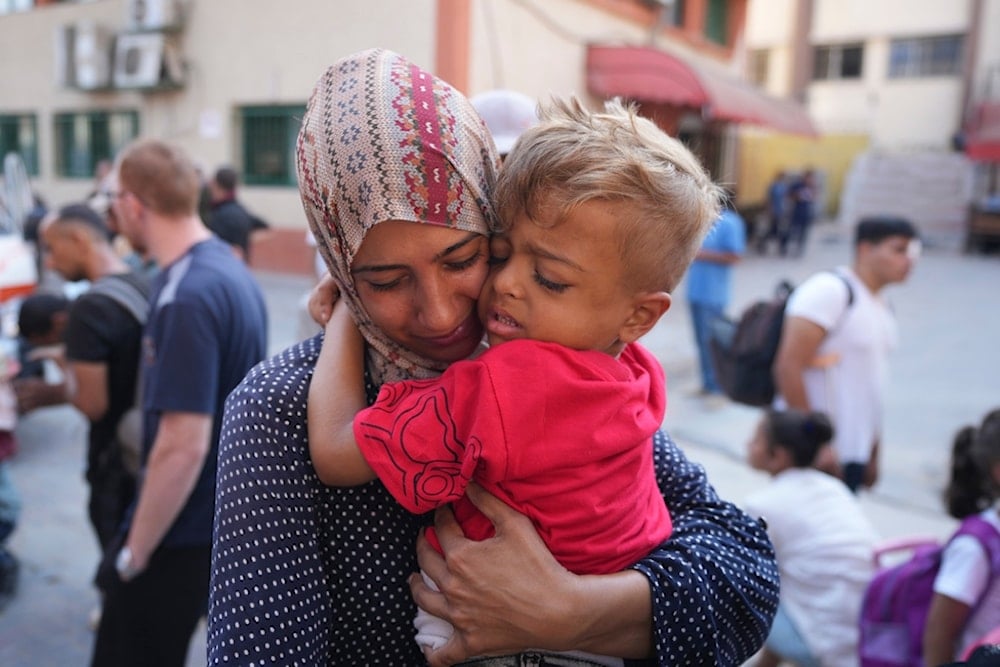UN warns of life-threatening health risks for women in Gaza
A UN agency warns that women in Gaza face life-threatening health risks as over 85% of health facilities are damaged.
-

A Palestinian woman says goodbye to her sick son before leaving the Gaza Strip to get treatment abroad, southern Gaza Strip, Thursday, June 27, 2024 (AP)
A UN report warned that thousands of women in Gaza are facing life-threatening health risks due to “Israel’s” ongoing genocidal war, which has resulted in nearly 42,000 Palestinians killed.
According to the report, more than 85% of health facilities in Gaza have been damaged, severely disrupting medical services and limiting women's access to essential care, such as cancer treatment, maternal health services, and psychological support.
UN Women called for urgent assistance to address the specific health needs of women and girls in the region.
The Palestine Red Crescent Society (PRCS) also warned of a potential complete shutdown of health services at al-Amal Hospital in Khan Younis due to a lack of fuel and spare parts for electric generators.
The PRCS urged international organizations to pressure “Israel” to allow new power generators into Gaza and provide necessary supplies to prevent the collapse of life-saving medical services.
Read more: In Gaza, two mothers are killed per hour: UN Women
84% of health facilities destroyed in Gaza
In late September, UN Women issued a report detailing the excruciating toll women endure amid the collapse of healthcare services and the lack of access to essential medicines.
Titled War on Women's Health in Gaza, the report warns that more than 177,000 women face life-threatening health risks, with 162,000 affected or at risk of developing non-communicable diseases (NCDs) such as diabetes, cancer, and cardiovascular diseases.
The report also highlights that 15,000 pregnant women are on the verge of famine, further increasing their vulnerability to serious complications like infections, anemia, and hypertensive disorders.
Amid this healthcare crisis, pregnant and breastfeeding women face the most critical challenges, with a majority of them reporting severe health issues due to the lack of reproductive health services.
The destruction of more than 84% of health facilities in Gaza has left the remaining services without basic life-saving supplies, electricity, and clean water.
In addition to their health struggles, women are also carrying the burden of being the primary caregivers for their families, often prioritizing their families' needs over their own.
This situation has worsened as hunger and starvation conditions increase, with women often eating last and least in their households.
The re-emergence of polio is adding even more pressure to an already fragile healthcare system, threatening the well-being of women and children alike.

 3 Min Read
3 Min Read








